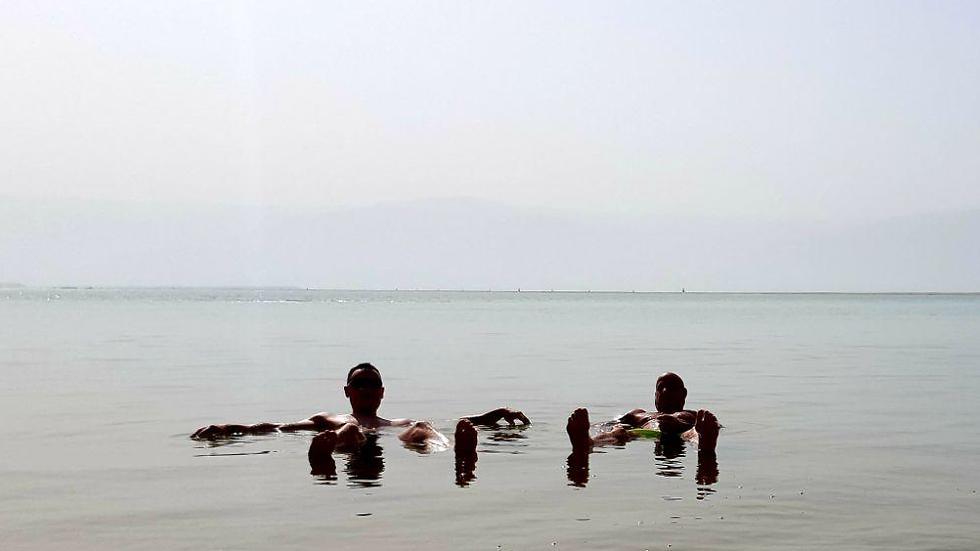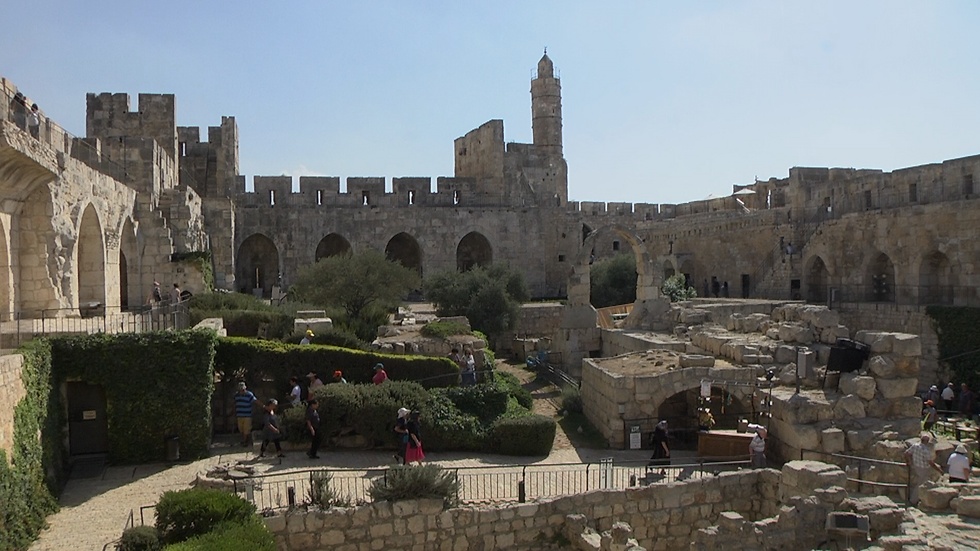Getting your Trinity Audio player ready...
Israeli tourists are ubiquitous abroad, beginning with the ritual of post-army foreign trip that prepares them for a lifetime of international travel.
But coronavirus has put a halt to departures from Ben-Gurion Airport and Israelis in other countries have been repatriated.
7 View gallery
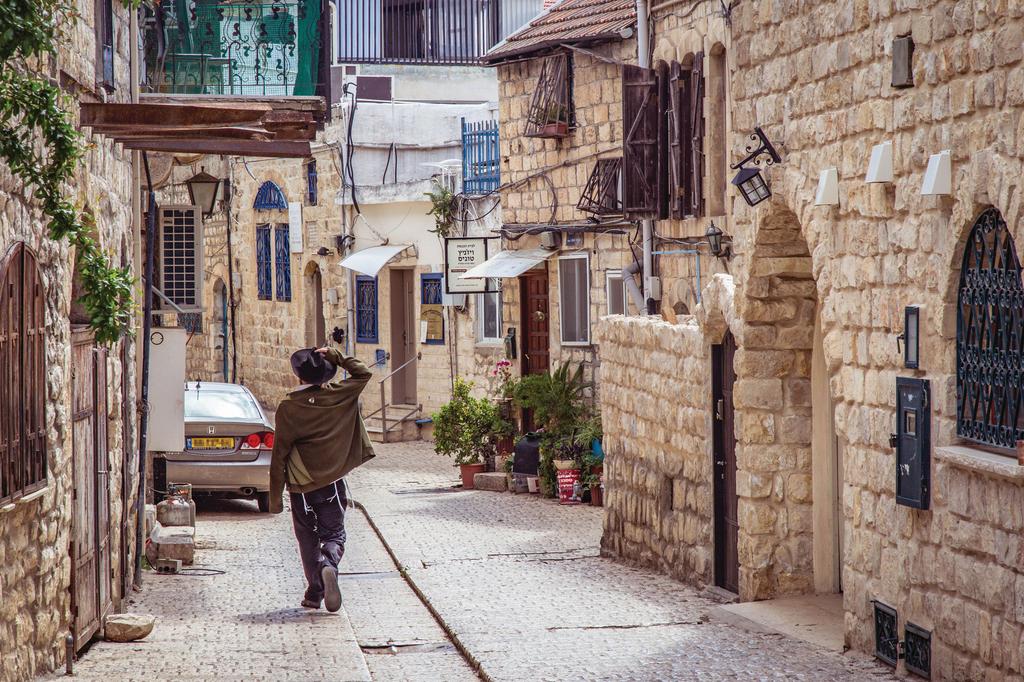

The northern city of Safed is traditionally a popular tourist destination
(Photo: Shutterstock)
Thus, the question: Can people used to touring other countries rediscover their own, giving a boost to Israel’s sagging tourism industry?
The consensus from tour guides appears to be that Israelis aren’t exactly lining up to see the sights on an organized tour.
“Israelis will probably travel more within Israel because they cannot travel abroad. But most of them will travel by themselves. They don’t need a tour guide for that,” says Ronen Ben Moshe, a tour guide based in Jerusalem.
According to Ben Moshe, part of the reason Israelis might not want a tour guide is concerns about coronavirus in a large group.
Northern Exposure Tours has tried to address those concerns. The company, run by Galileans Tamar Weissman and Aliza Avshalom, offers tours of northern Israel catering to the Anglo-Israeli community.
7 View gallery
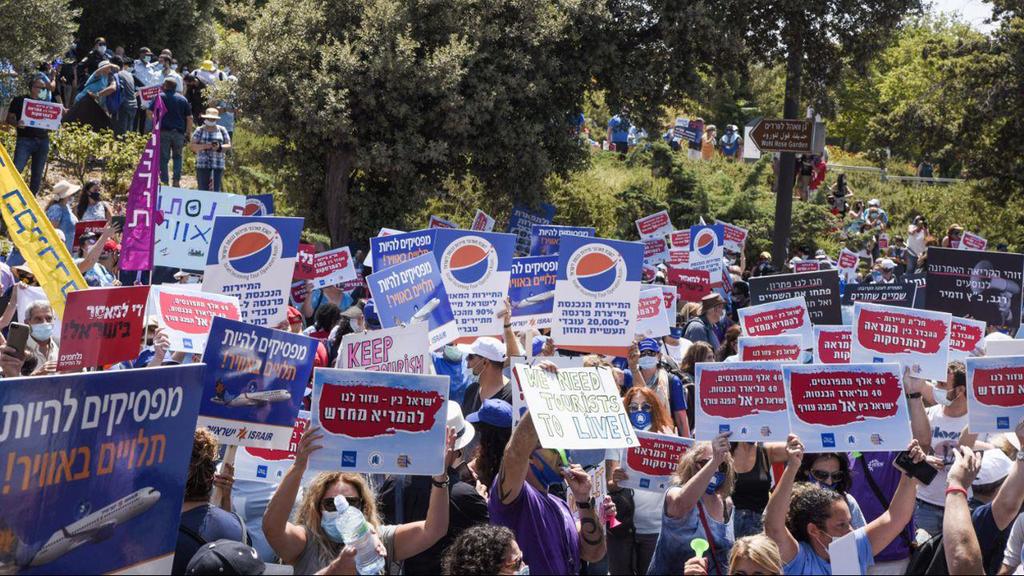

Members of the tourism industry protest outside the Knesset in Jerusalem over the lack of government assistance
(Photo: Shalev Shalom)
Avshalom says they wanted to hold a tour last week as “COVID-safe as possible.”
With tourists in private vehicles to keep social distancing, they used Zello, an app that turns smartphones into a walkie-talkie, to communicate about the historic sites as they were driving by.
“People are driving on their own because they don’t want to be on a tour bus, and technology allows us to kind of put it all together,” Avshalom says.
More than 4.5 million foreign tourists visited Israel in 2019, according to the Tourism Ministry. It marked the third-straight record year, a streak that is sure to end in 2020 due to the coronavirus outbreak.
The Organization for Economic Cooperation and Development (OECD), of which Israel is a member, estimates that international tourism could decline by 60% and as much as 80% if recovery is prolonged until December.
Domestic tourism, according to the OECD, is expected to recover much more quickly. This sub-sector accounts for around 75% of the tourism economy of OECD countries.
7 View gallery
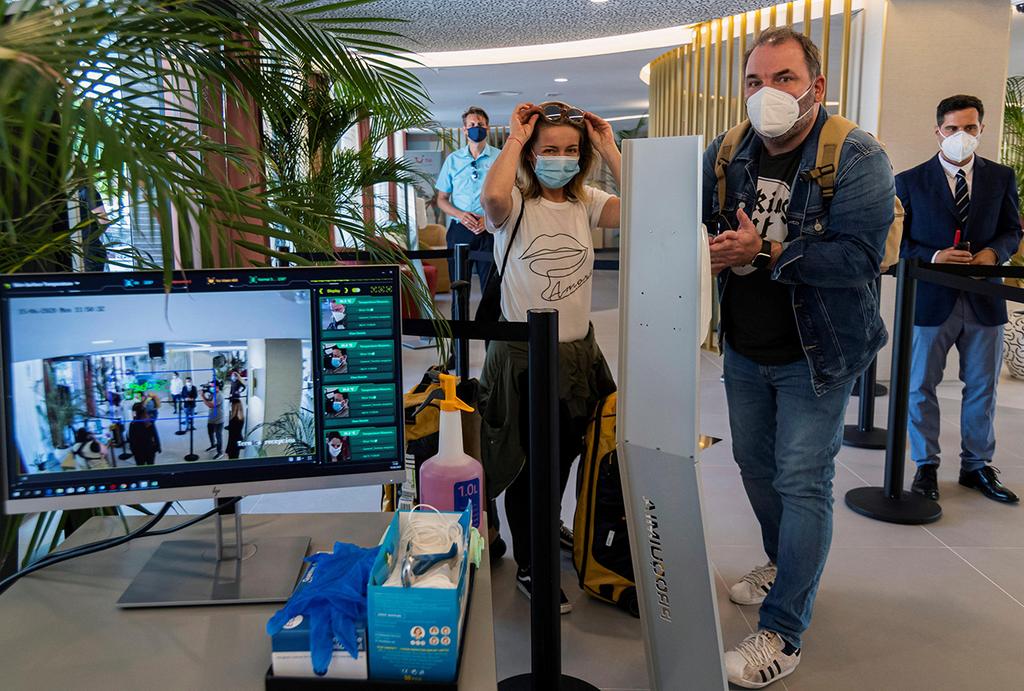

German tourists arriving in Spain for a vacation during the coronavirus pandemic
(Photo: EPA)
“It offers the main chance for driving recovery, particularly in countries, regions and cities where the sector supports many jobs and businesses,” according to an OECD report.
According to the Tourism Ministry, incoming tourism to Israel in 2019 added up to NIS 23 billion ($6.453 billion) in revenue while domestic tourism brought NIS 12 billion to the coffers.
Virginia Manzanares Ceballos, a Jerusalem-based tour guide, says the increase in domestic tourism is not evenly distributed across the country and that these tourists are not using local guides.
“Maybe in the Dead Sea it is full of Israelis. Eilat and Tiberias and [the] Golan Heights, they are full of Israeli tourists,” she says. “Jerusalem, personally, I don’t see Israeli tourists.”
7 View gallery
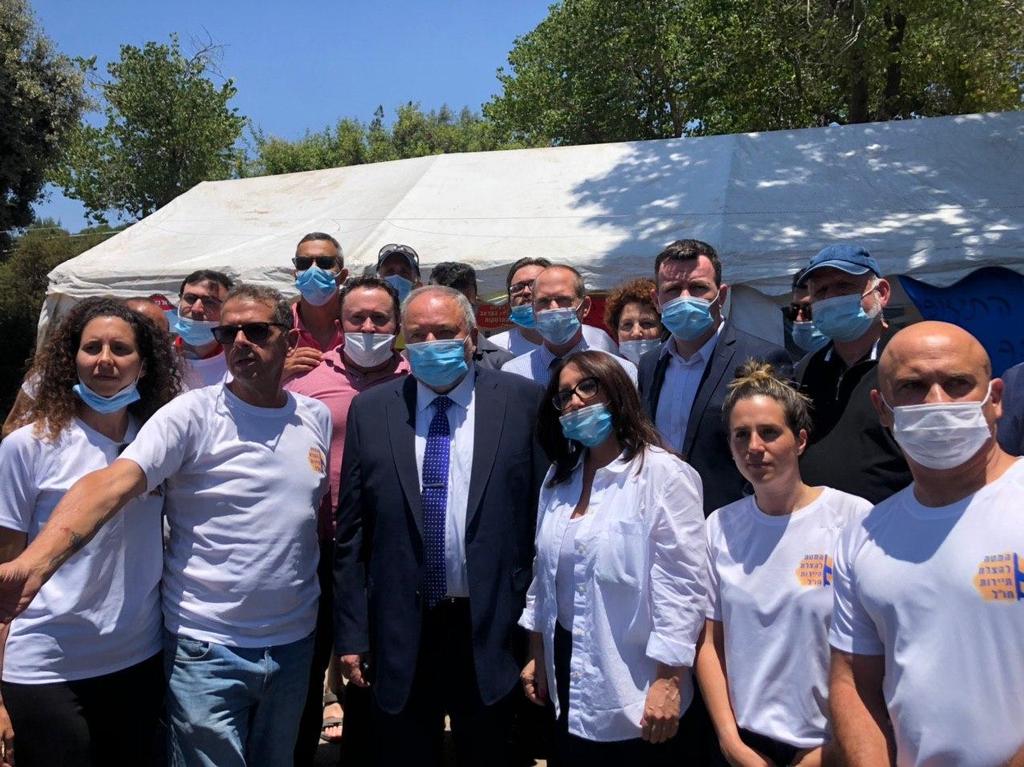

Yisrel Beytenu leader Avigdor Liberman joins protesting members of the tourism industry in Jerusalem
(Photo: Nadav Abas)
Statistics on hotel occupancy rates across Israel appear to confirm Ceballos’s observations.
According to the Israel Hotels Association, hotels outside places that are popular with Israelis, such as the Dead Sea and Eilat, have lots of empty rooms.
In Jerusalem, Tel Aviv and other parts of the country, mid-week occupancy rates are at no more than 10%, and on the weekend no more than 20-30%.
That is compared to the Dead Sea, Eilat and some northern areas of the country with mainly Israel visitors, where mid-week occupancy is about 50%, and on weekends shoots up to 80-90%.
At the beginning of the coronavirus crisis in mid-March, 96% of Israel’s 430 hotels closed, according to the Hotels Association. Today, 261 hotels are open.
“From the end of May, the hotels began to open gradually, especially in areas such as Eilat, the Dead Sea and some of the hotels in the north, where most of their guests are Israeli,” says Tali Tenenbaum, vice president of communication and marketing for the Hotels Association.
While Israeli hotels operate in accordance with a “purple standard,” the term given to coronavirus safety measures written in collaboration with the Health and Tourism ministries, Tenenbaum says there is concern that new restrictions passed on Monday by the “corona cabinet” could cripple the industry.
Among the new regulations approved in response to a spike in coronavirus cases was the reclosing of clubs and bars on hotel grounds, and capacity limits at restaurants and dining halls to no more than 20 people in a closed space.
“It will lead to a very severe blow to the hotels that have already opened, to the point of being unprofitable to operate them,” Tenenbaum says.
According to the Tourism Ministry, about 15,000 direct workers are employed in Israeli hotels.
The ministry is now launching a $2.3 million campaign to boost domestic tourism.
7 View gallery
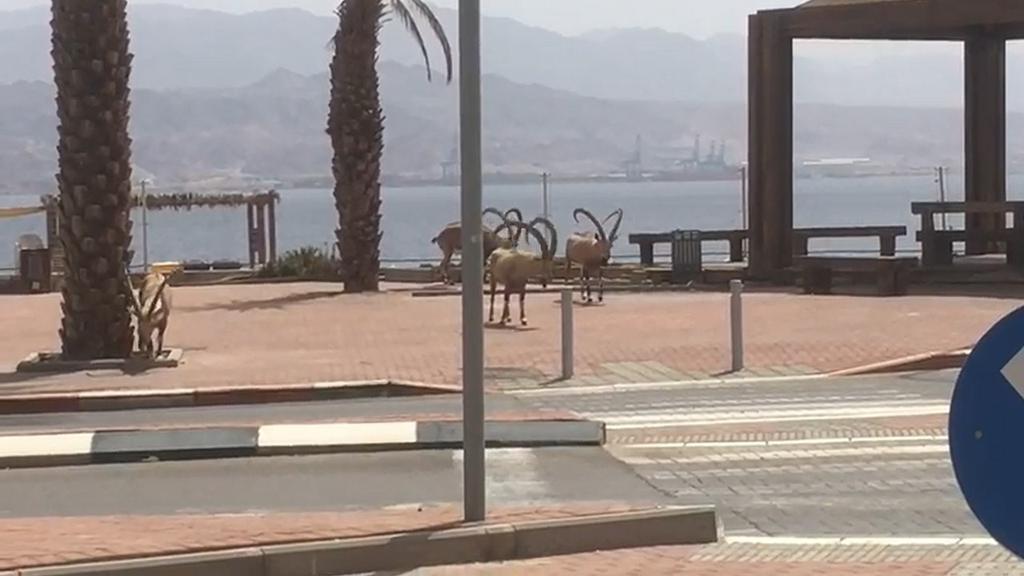

Ibex stroll down the deserted promenade in Eilat at the height of the pandemic
(Photo: Society for the Protection of Nature in Israel)
While the country’s ailing tourism industry needs help and the campaign would certainly be welcomed by tour guides – many having to find other jobs to support themselves – Avshalom says that there are health benefits to boosting tourism in the time of coronavirus.
“One of the safer things you can do for families is go out and go for trips,” Avshalom says.
“Because during corona, when you don’t want to be in the city and you don’t want the crowds, one of the safer things you can do is to be out and around and outdoors.”
Article written by Joshua Robbin Marks. Reprinted with permission from The Media Line


